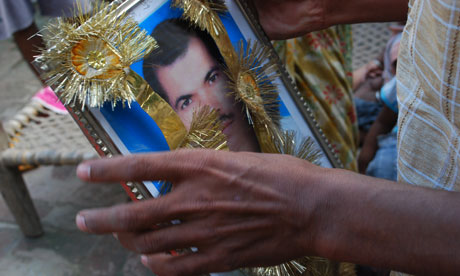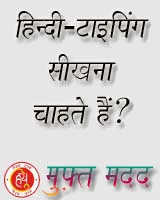Shashidhar Mishra uncovered official wrongdoing using India's Right To Information law. Now he's become an RTI martyr

Shashidhar Mishra was always a curious man. Neighbours in the scruffy industrial town of Baroni, in the northern Indian state of Bihar, called him "kabri lal" or "the news man" because he was always so well informed.
Late every evening, the 35-year-old street hawker would sit down with his files and scribble notes. In February, the father of four was killed outside his home after a day's work selling pens, sweets and snacks in Baroni's bazaar.
The killing was swift and professional. The street lights went out, two men on motorbikes drew up and there were muffled shots. Mishra, an enthusiastic RTI activist, as those who systematically use India's right to information law to uncover wrongdoing and official incompetence are known, became the latest in the country's growing list of RTI martyrs.
The RTI law, introduced by the Congress party-led government in 2005, was a radical piece of legislation giving private citizens the right to demand written answers from India's always opaque and often corrupt bureaucracy and state institutions such as the police and army.
"It was a total paradigm shift from a regime of secrecy to one of transparency," the law minister, Veerappa Moily, said in an interview in Delhi. "It has changed the entire culture of governance."
In many ways, the law has been an astonishing success, prompting requests from tens of thousands of often poor, sometimes almost illiterate, always highly motivated citizens. In Bihar, more than 100,000 demands were made last year, 20 times as many as five years ago, said AK Choudry, the chief information commissioner for the state. In India as a whole at least a million RTI requests have now been filed.
"This act is for the common man of India. Without paying a bribe a poor man can get answers. We have the right to know what is happening in this country," said Afroz Alam Sahil, a student from Bihar who has registered hundreds of requests.
Yet, with the rule of law weak in much of the country, exercising new rights can mean danger. At least 10 activists have been killed so far this year. All found themselves up against powerful individuals, often in league with local authorities. One uncovered a series of corrupt land deals and thefts of social benefits by officials and was subsequently hacked to death near his home near the city of Pune, Maharashtra state.
A 55-year-old stallholder was killed after investigating electricity supplies and gambling dens in his home town of Surat in the western state of Gujarat. Two activists investigating fraud in government labour schemes for the poor were killed in the lawless eastern state of Jharkand, while others - including a 47-year-old sugar cane farmer in the central state of Maharashtra and an activist near the southern city of Bengaluru - were killed after investigating land acquisitions by big businessmen.
In July, Amit Jethava, a pharmacist in Gujarat who had hounded officials about mining endangering Asian lions, spotted deer and wild boar near his village was shot dead. There has since been a lull in the killings, but beatings, intimidations and threats continue.
Amitabh Thakur, who heads an RTI network in Lucknow, Uttar Pradesh, and is writing a book on the RTI martyrs said that "cases of murder, persecution, prosecution and harassment" are legion. "When you are digging for information there are people who try to hide it from you," he said. "They will do what it takes to keep it hidden."
The true number of activists killed could be much higher. Frequently, campaigners say, the authorities deny a link between the RTI requests and violence, dismissing incidents as everyday crime.
Choudry said that no killing linked to RTI had taken place in Bihar and that Mishra's death in February was "not linked to any RTI application". Local police denied Mishra was an activist and said they no longer had possession of the investigation file opened on his death. It contained, his family said, most of the answers he had received to his various RTI requests.
The dead man had hidden a box of papers at home that suggest the hawker's activism was indeed the reason for his murder. The documents, seen by the Guardian, included receipts for hundreds of different applications for information about local officials, businessmen and even the police themselves.
Mishra, described by his sister as a "sharp and smart guy", had started demanding information two years before his death. His first target was a local government-run dairy, a big employer, where he suspected animals were being mistreated. His next campaign focused on unlicensed stalls run on public land outside the local railway station. These were eventually demolished.
Encouraged by his success, Mishra asked for records of land purchases and sales by members of the local council over the last 20 years. In June last year, he began investigating the local market, largely built by local businessmen on government land. A month later, he asked why there was no electricity in the local health clinic. By the end of the year, he had established that many of the contracts awarded to resurface a road through the town were suspect. He spoke darkly to his family of death threats.
In December and January, Mishra filed a flurry of further information requests, asking for details of the postings of certain policemen and the whereabouts of vehicles the police had recently impounded.
On 9 February , he requested a list of those contracted to carry out construction of a road in the market. He also demanded the local council's 2009 accounts. The answer — which showed that at least £80,000 had been paid to contractors for work that had never been carried out — arrived in May, three months after his death.
His killers had used silenced handguns, the mark of professionals. That a power cut plunged the street into darkness for the few minutes they needed to work indicates the involvement of officials, campaigners claim.
Now his brother Mahdidar is trying to look after four extra children on a family income that has been halved. He told the Guardian he was "desperate".
"I want justice for my brother, but what can I do? There are many corrupt and powerful. I am just one man."
Cases of intimidation and violence are "isolated", Moily, the law minister, insisted. "Wherever protection is needed the government provides it."








0 टिप्पणियाँ:
एक टिप्पणी भेजें